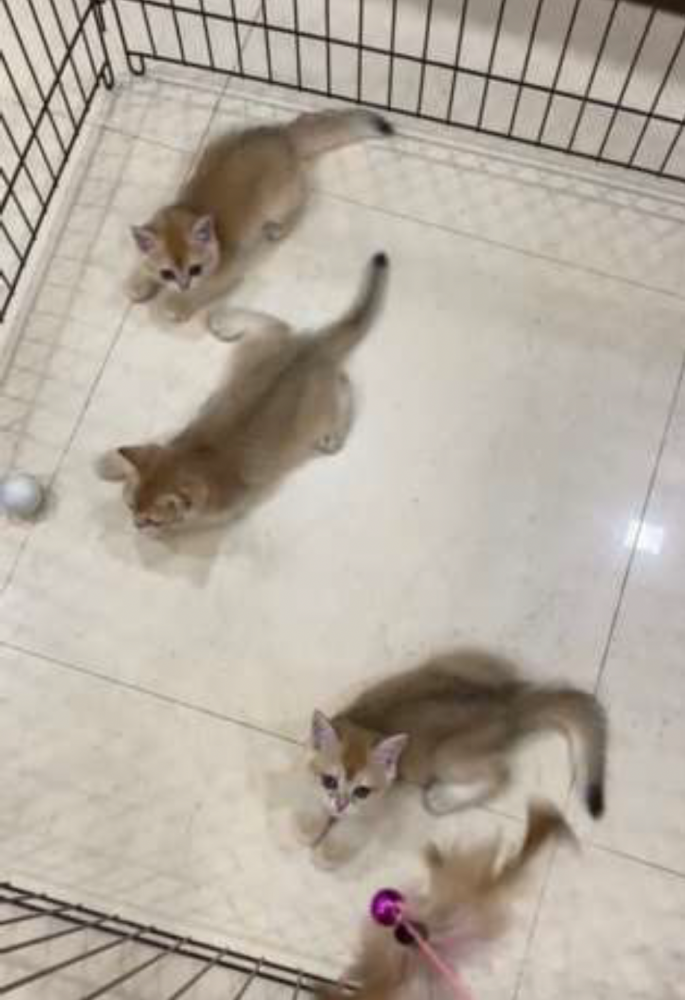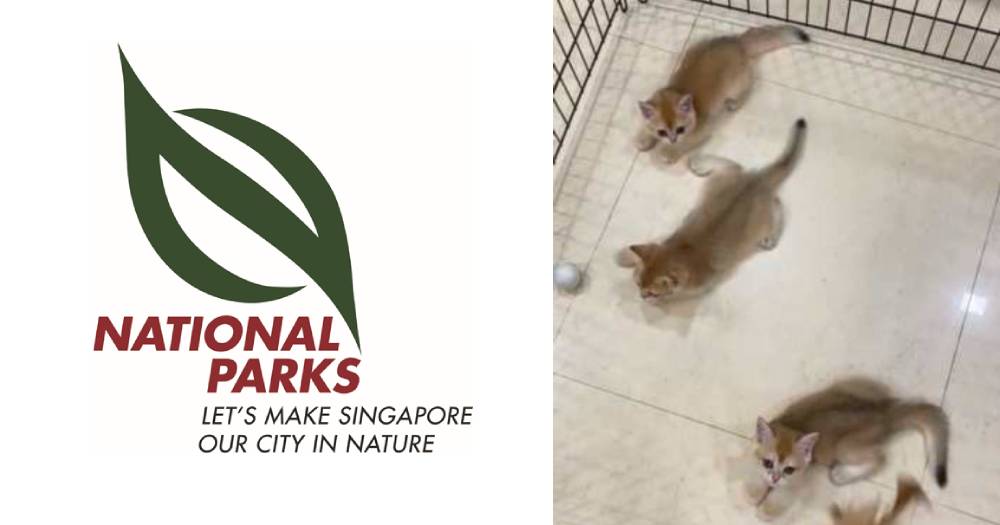Follow us on Telegram for the latest updates: https://t.me/mothershipsg
Investigators from the Animal and Veterinary Services (AVS) have seized 29 cats, including five kittens, from an illegal backyard breeder on Jan. 9.
 Image via NParks.
Image via NParks.
The National Parks Board (NParks), which AVS falls under, said they received a tip-off about unlicensed breeding and selling of cats from a member of the public on Jan. 6.
Subsequently, on Jan. 9, AVS inspected the residential premises of a 58-year-old woman, believed to be used for breeding and selling cats.
Mothership understands that the 58-year-old lives in a landed property.
According to NParks' press release, the 58-year-old woman is currently assisting AVS with investigations.
14 female cats, 10 male cats, five kittens
Out of the 29 cats that were seized, there were 14 female cats, 10 male cats, and five kittens.
A pregnant cat, a nursing female cat and its kittens were sent to a veterinary clinic for observation.
The remaining cats are now under the care of AVS in the Animal Management Centre, and have been assessed by AVS vets to be in good condition.
Prospective pet owners urged to purchase from licensed pet shops
Under the Animals and Birds Act, individuals who keep animals in captivity for sale without a license can be fined up to S$5,000, face up to six months in prison, or both.
Under the same Act, the penalties for using premises as a farm without license is a fine of up to S$10,000, up to one year’s imprisonment, or both.
In their press release, NParks urged prospective pet owners to purchase their pets from licensed pet shops that maintain records of each animal that they have kept in their premises, including the source, import date, importer, date of reception and date of sale of the animal.
Animals allowed to be sold in pet shops include dogs, cats, rabbits, guinea pigs, hamsters, gerbils, mice, chinchillas, birds, and fishes that have been obtained legally from regulated sources.
Prospective pet owners should not purchase from unknown sources including those on online platforms, as the health status of these animals are unknown and may carry diseases, according to NParks.
Animals from unknown sources could be smuggled or not bred according to the standards of animal health and care which AVS impose on licensed breeders and pet shops.
NParks emphasised that the community, pet owners and the industry have a shared responsibility to safeguard animal health and welfare in Singapore.
Follow and listen to our podcast here
Top image via NParks & NParks/Facebook
If you like what you read, follow us on Facebook, Instagram, Twitter and Telegram to get the latest updates.
